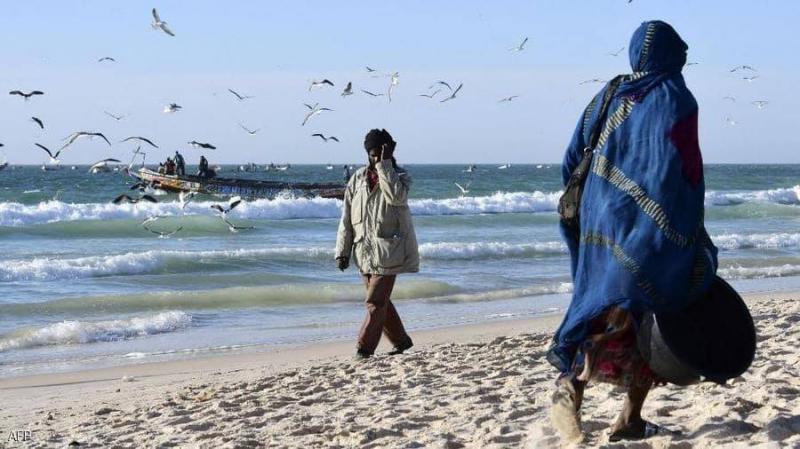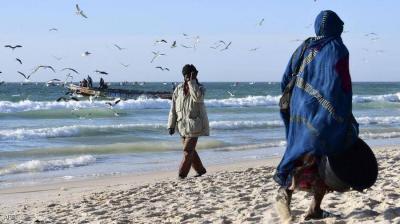Under the title "Nouakchott Threatened by Drowning: Warning of Human and Climatic Risks," Sky News Arabia reported that in mid-December 2009, at the Climate Summit in Copenhagen, former Mauritanian President Mohamed Ould Abdel Aziz complained to world leaders about the threat facing his country's capital due to climate change, calling for cooperation from all countries to address the catastrophic environmental damage and its impact on all aspects of life.
With the founding of the Mauritanian capital at the end of the 1960s, Mauritanians were accustomed to bringing construction materials from the shore, where the fine white sand is found, but they did not realize the importance of those dunes until much later. The depletion of sand from the beach weakened the sandy barrier protecting the city, leading to gaps that could pose a danger if seawater seeped through.
Environmental and climate change researcher Mohamed Abdullah Al-Mustafa stated that "Nouakchott is among 12 cities in the world threatened by drowning due to its low topography, in addition to various factors, some of which are climatic and some human."
On his part, the Director of Meteorology in Mauritania, Sidi Mohamed Amin, confirmed to Sky News Arabia that "most areas of Nouakchott are below sea level, which could encourage disaster occurrences during extreme marine phenomena." Amin added that the effects of climate change have already begun, albeit slowly, as rising temperatures lead to snowmelt, resulting in increased sea levels, noting that "this process is slow and only noticeable to students studying the movement of the sea."
Concerns arise from the movement of waves and strong winds, which have become a real danger in recent years due to climate change. Given the erosion of the sandy barrier protecting the city, it is likely that, in the event of extreme weather phenomena such as high winds causing waves of three or four meters accompanied by heavy rains, seawater could seep into the city.
An Ongoing Threat, but Not Inevitable
With growing awareness of the importance of the environment, non-governmental organizations in Mauritania have become active in promoting awareness and assisting the government in environmental protection efforts. Ahmed Ould Mahmoud, head of the Environmental Protection Organization in Mauritania (APEM), stated that "the threat of marine flooding for the city of Nouakchott is present but not inevitable." He confirmed to Sky News Arabia that "the government has conducted necessary studies, showing that the Edini underground lake, which supplied the capital with fresh water, has begun to deplete, which could allow seawater to seep into it. Therefore, the government halted the exploitation of the Edini Lake and launched the Aftout Coastal Project and prohibited any use of beach sand, while restoring the sandy barrier."
Black Soil
Amid the underlying danger posed by the sleeping giant at the edge of the city of Nouakchott, observers are sounding alarm bells over the excavation of black soil in the "Lekweishish" area south of the capital, where the Mauritanian government approved in 2016 a license for resource exploitation in the area for a global company.
At that time, activists, including the current president of the National Human Rights Commission, Ahmed Salem Ould Bouhbeyni, launched a campaign to prevent this license. After initially refusing to grant it, the government reversed its decision and issued the license to the global company, despite experts' warnings that it might pose a new threat of flooding for Nouakchott.




